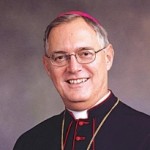So, Robert Burns had it quite right. There are events in our lives that defy planning or anticipation. Whether it is the birth of a child, the start of a new job, or the expected death of a loved one after a long illness, “the best laid plans of mice and men often go awry…” or, in the case of my family, crumble under the weight of a grief so heavy and complete that no amount of mental, material or emotional preparation was sufficient to deal with the reality of my brother’s death.
In the months leading up to the awful day, while we were caring for S at his home and later, when that became impossible, helping him at hospice, we thought we’d done all the things that needed doing. We had shared our memories, smiles and tears. We had said, “I love you,” hundreds of times. We had talked about necessary planning. “I want to be cremated,” S had declared many times. One afternoon in particular he had added, “and then go to Hawaii and scatter my ashes all over the place…
We’re not lovers of the airplane in our family, and so I reflexively responded, “Oh, screw that, Hawaii is too far, how about we scatter you over Staten Island?”
“Whatever,” he smiled.
He would always do that. As much as S was very much the fighter when it came to his life, he hated discord and would never argue a point. “Whatever,” S would say. “Whatever it takes, whatever makes you happy, whatever needs to be done to get everyone back on an even footing. Whatever.”
S allowed that the Hawaii part was not “written in stone” and we made sick jokes about that phrase, for a while.
But we thought we’d had it planned. We had worked it all out, back toward Thanksgiving, when it looked like our brother would not be with us much longer. “Let’s do this now, make the arrangements while we have our heads about us, when we are not running on emotion…”
It all seemed so sensible — and doable — that “not running on emotion” part, I mean. We believed we could do that.
I believed I could do that.
Do you know that when a brother dies, even though you have expected it, you suddenly can’t remember how to dial a phone? You attempt to call the funeral director who has been so incredibly helpful, but you can’t manage all those crazy digits in that tiresome, necessary order. You can’t remember your husband’s number at work. The phone just stops making sense.
We had done it. We’d prepared. We’d started with the liturgy, poring through our bibles, our liturgical books, scanning the internet, to find the perfect readings, readings that would comfort our mother and tell her and our father, over and over again, “it’s going to be alright; S is guarded and in the company of angels; he is with Jesus, and not alone, and we will see him again…”
We had picked the readings, the hymns. Later, those of us who could bear, it went to the funeral director (we are lucky to have a distant cousin in that business, and he was exceptional in every way, for us) and we sat around a big table and made arrangements and talked about prayer cards and flowers and crematories and urns. We didn’t love this cremation idea. It seemed so foreign to us, so lacking in closure, but it was what S wanted, largely because in his emaciated, shrunken state he felt “ugly.”
Whatever, my brother, whatever. You want cremation? You’ve got it. Several friends sensibly advised us not to spend much money on the casket – to buy something cheap or rent something a little nicer, but still not to go overboard. “Funeral directors take advantage of your grief, don’t let them get away with it,” we were warned.
It was good advice, I guess, but S — smart as he was — was never sensible about money, and when we saw the shiny black-and-chrome number with a rental fee that rivaled some used cars, we threw sensibility out the window. S loved flashy; he loved black and silver and red. We found a casket that looked like it belonged in Vegas, and we knew we had to get it for S. It was so him!
“Pile red roses on it,” I had told my husband, “and no matter who comes to the wake, they’ll walk in and say, “that’s him!”
It’s funny. We never discussed any of these arrangements around S in his sickbed — it was always done, and spoke of, far away from him. Still, a few nights after we’d made all of our arrangements I was sitting beside S, reading while he slept. He awoke and looked at me for a moment and then said, “you got me a steel box. Good.”
I stared at him, dumbfounded, and he went back to sleep.
Whatever, my brother.
So last week, the phone jangled at 9:10 and I just knew. And my brother J was on the other end, gasping and howling. More than simply brothers, they are best friends, and J has spent nearly every waking minute at S’s side for the last six months. His pain at this moment is something exquisite and raw. “He’s gone! He’s gone! Oh, he’s gone, how am I going to live? He’s gone!”
And I listened to my brother for a minute and clicked into what my family calls my “efficiency mode.” I barked orders to him, hung up, called a neighbor of Mom’s and asked her to hurry next door to her, and then I suddenly lost the ability to dial the phone.
Who knew? Who could anticipate it, this searing, terrible sense of abruptness; there is nothing abrupt in a six month song of dying, and yet here we were, almost catatonic, in shock.
How can he be dead? Even now, I shake my head. How can this creative, bright, generous-to-a-fault man be gone?
“Are you going to write about this?” my husband would ask me, every night when we returned home.
“No, I can’t write a word until it is done and over,” I said. And I couldn’t. I had no words. I had no insights, nothing to share.
I can’t tell you anything wise about death and wakes and funerals. Whatever. I have come away knowing only a few things:
1) Mothers are geniuses. They are living examples of what Pope John Paul II refers to as “the genius of the feminine.” Our mother — our dear, self-less, tireless mother — saw her son in death and fell apart, as any mother would, and we let her do it. But when her granddaughter could not find her own composure this woman — this tiny, tremendous, heroic woman — put aside her need to grieve and took the girl into her arms, and comforted her, “it will be all right…”. She reminded the young one of all the things we believe: that S is with Jesus; that he is in glory; that we will see him again.
I watched in stricken awe. It helped Mom to do it, because this is a woman who is most comfortable and familiar with serving others. She sees her whole life as a vocation of service and love to her family and friends. A true vocation, albeit one that society stupidly overlooks, to its own detriment. Having consoled her granddaughter she commenced to greet everyone, never taking her seat, never allowing herself to rest, as she made everyone welcome. Nearly overwhelmed at one point with grief, heat and a crowd with never abated, she turned to me, saying, “I can’t believe how many people are here…all of these good people…”
And I watched her in her shock and cried my first uncontrollable tears. Not for my brother, or for everyone’s grief, but for Mom, as I thought, “Oh, Mom, don’t you understand the regard with which you and Dad are held? Here is the whole parish, the whole neighborhood — people from every sort of background — turning out, because they know you. You are the woman who never fails to send a meal when you hear someone is sick — the first to welcome anyone new to the area — the woman who can never do enough and looks for nothing in return. Dad is the man who never has to be asked to lend a hand when a neighbor is working at a laborious task, whose character and faith are carried quietly and powerfully. Don’t you know who and what you are to these people?”
Love is such a mystery. We were surrounded by it at the wake; love came forward like a long, ongoing hug, and it brought with it such healing.
2) The Irish have it right. I’m not
a drinker — a few cocktails a year, on special occasions, and a Guinness here and there is my speed. In the second hour of S’s wake — when hundreds, literally hundreds of kind, generous, compassionate people were filling the rooms and condoling with us — I suddenly had one idea in the back of my mind: whiskey.
By dinner time the idea had evolved into two vodka martinis and an Irish Coffee, and finally my hunched-up shoulders relaxed and the rest of the night seemed survivable. I don’t know how the rest of my family managed to function without the strengthening liquid, but it worked for me.
3) It is a good thing to have a cousin — no matter how distant — who is a funeral director. He worked a miracle with S, and somehow made him look (as folks said, over and over) “like S, last year, or two years ago, before he got sick!” There was no trace of the suffering and pain S had endured in these last months, no sign of gauntness. He looked to be peacefully sleeping. I kept thinking I could walk up to him, take his hand as I always did, and just pick up where we had left off. Truly, miraculous.
I didn’t know they could do that. I never thought of funeral directors as having real ministry before, but our cousin ministered to us, taking great pride in his craft and helping us enormously. None of us had anticipated standing over S’s remains and exclaiming, “he looks so beautiful!” But S had been a beautiful man, and he looked, yes, beautiful.
4) It doesn’t matter what plans you make, things change. Another way to say it (and my husband and I said it ruefully this weekend) “We did too well with the box!” The shiny black-and-chrome number we’d picked for S and heaped with red roses was perfect. So perfect that the combination of our cousin’s brilliant work and the pretty box served to throw the family — already not in love with the cremation idea — into a tizzy. It began with J and snowballed. He looks so beautiful, and we want him to have this beautiful box…
I tried to resist. As I drank my supper and listened to various brothers discuss all the reasons we should not cremate S, why we should entomb him, instead, I did try to remind them that — up until now — we’d followed all of S’s wishes, and cremation was his wish.
But the sentiment over-road the practical and when I remembered how S. turned to me and said the “steel box” was “good” well, hell, I tossed back the martini and adjusted my other brother’s tie and said, “Whatever. That’s what S would be saying right now: Whatever!” I could even hear him say it, chastising me (as he always did) to lighten up, “Oh, Lizzie, don’t worry about it! It’s not important! Whatever!”
And so some changes were made, which had the effect of extending the whole funereal process. Rather than finishing up on Monday, with a Mass of Christian Burial and then the cremation, we spent Monday night and much of Tuesday diligently writing out thank-you notes as new arrangements were made.
5) Helpful hint: When you go to a wake, and there is a sign-in book, sign in your whole name and your whole address with zipcode. Don’t expect that whoever in the family knows “Joe, Joan and Tony” will be the ones writing out the thank-you cards and will know who you are and where you live. My husband and I had to go to a different wake last night (a friend’s mother had died) and we very carefully printed our name, address and zip into the book. We had learned our lesson!
6) Liturgy is stupendous. The blessing of liturgy is that it wipes out self. We entered the church exhausted, emotionally fragile, bent over and beaten, and as the familiar readings and hymns, the “bells and smells” and formal prayers of the liturgy progressed I looked at our family and noticed that we were sitting straighter, listening attentively, nodding, kneeling, praying, allowing all that was familiar and “normal” to wash over us, to bring us a sense of otherness — of something other and greater than ourselves, and of great promise – to assist us with all of these other, newer feelings.
There was victory in the liturgy, and a conquering. Here was the church triumphant, “O death, where is thy victory; O death, where is thy sting?”
7) Our family is astoundingly blessed with resources which helped us in the past week. Aside from the funeral-director cousin, we have a priest-cousin, a remarkable, gifted man who radiates joyful faith and warm empathy. He is accessible and dependable and one terrific preacher. He was incredible, and brought enormous comfort, even to our Jewish and agnostic friends, who commented later on his remarks.
We have altar-server cousins. We have a collection of brothers and friends who were superb pall-bearers. We have sons and daughters who participated in the funeral in small, beautiful ways.
We have Buster and his saxophone, playing a sad and bluesy “Amazing Grace,” all alone, in the organ loft of a church with warm acoustics. We knew a soprano who sang without ego. We have a pastor who took our parents in hand and simply loved them and prayed with them and loved them some more. Blessings, all.
Everything helped. Everyone helped. S was interred today, in his beautiful box, and his family is greatly comforted, and now — slowly, I am sure — we will begin the process of moving forward with him gone. We know we will see him again. Amen.
Last night, at the wake of our friend’s mother, someone who is familiar with the blog asked me if I had seen all of the condolences and trackbacks left by readers and other bloggers. I confessed to her that I had not so much as turned on the news or sat at the computer — it all seemed so very far away from reality for me, and I’d been so exhausted each night, after each day of changes or things to see to.
“Check your blog when you get home,” she advised.” The word has gone out, and people have left beautiful responses to it.”
She was right. I’ve had a chance, finally, to read those responses, and to note all the trackbacks, and I am humbled and gratified beyond expression, as is my family. I want to thank Lorie for so generously sharing the information of S’s passing, and to thank all of you who have left comments or emails. I do hope to express my thanks to each of you individually in the coming days, if I possibly can, but in the meantime please know that flicking on the computer and reading your condolences, or your own remembrances of your departed family members, has been a gift and a kind ministry to all of us, over here.
I am, as ever, astounded at the unceasing kindness of strangers. God bless you. God bless us all. Amen and amen.
Welcome, Andrew Sullivan readers. Thanks for looking in.
Related: Anchoress Crashes and Burns, Film at 11
A Moment of Grace
Because I cannot share these with my brother
In the Spirit of Christmas; A Letter to Maureen Dowd
The Kindness of Strangers
A Bruising and Most Contemptible Death
My Brother is Dying by Inches











